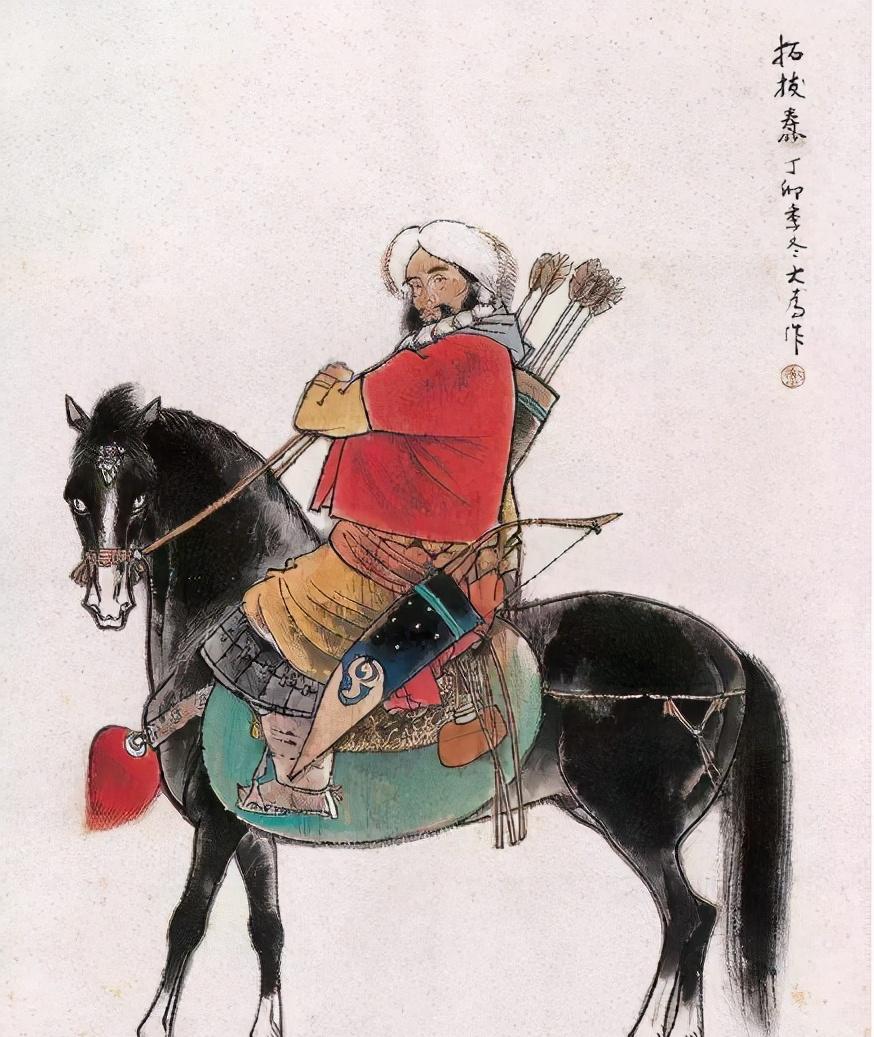During the Northern Wei Dynasty, Emperor Xiaowen carried out a comprehensive Sinicization reform, which allowed the Xianbei and the major ethnic minorities entering the Central Plains to be integrated into the Han nationality. This reform not only changed the ethnic composition of the north, but also changed the social nature of the Xianbei people, accelerating the social development and economic recovery of the north.
However, the evaluation of Emperor Xiaowen's reforms was also very controversial. Most people affirm emperor Xiaowen's reforms, believing that emperor Xiaowen's reforms promoted the Sinicization and social progress of the Xianbei people, making the Northern Wei more prosperous and accelerating ethnic integration. At the same time, the reform of Emperor Xiaowen is also a relatively successful and comprehensive reform that is rare in Chinese history, which meets the development needs of the times and is a historical necessity. Representative works affirming Emperor Xiaowen's reform include Xiao Li's "Commentary on Emperor Xiaowen of Wei" and Liu Jingcheng's "Biography of Emperor Xiaowen of Wei".

Tuoba Tao (represents the image of the Xianbei people before the reform)
However, some people also had a negative attitude toward Emperor Xiaowen's reforms. In ancient times, Ma Duanlin, Ye Shi, Wang Fuzhi, and Zhao Yi all thought that Emperor Xiaowen's move to Luoyang was the wrong choice. They believed that Emperor Xiaowen's move to the capital Luoyang, which led to the rapid corruption of the entire bureaucratic system in a relatively comfortable climate, was a turning point in the demise of the Northern Wei Dynasty. In modern times, there are many scholars who hold negative views on Emperor Xiaowen's reforms, and their main views are: First, Emperor Xiaowen's reforms restored the Confucian pedantic system of ritual music, and most of the study was the cultural dross of the Han people, but what was lost was the strengths of the Xianbei people, resulting in a serious decline in the military strength of the Xianbei people; second, Emperor Xiaowen's reform not only did not keep the Northern Wei strong, but made the Northern Wei go to ruin. Third, Emperor Xiaowen's reforms accepted Han culture in its entirety, especially the corrupt scholar culture, which made the Northern Wei lose its vitality and led to the rapid corruption of the Northern Wei nobility.
Emperor Xiaowen's travel map
Judging from the course of history, Emperor Xiaowen's reforms did not make Northern Wei strong. After Emperor Xiaowen's death, only 30 years later, northern Wei collapsed. But can this negate Emperor Xiaowen's reforms? I believe that we must look at Emperor Xiaowen's reforms from the height of history. If only from the perspective of the rise and fall of Northern Wei, if Emperor Xiaowen had not moved the capital to Luoyang, then the Rebellion of the Six Towns would not have occurred in Northern Wei, and Northern Wei would not have perished so quickly; even if there was a great chaos in the Central Plains, the Xianbei clan would have been able to retreat to the south of the desert and continue to dominate. In this way, Emperor Xiaowen's reforms did hasten the demise of Northern Wei.
But when we look at it from the perspective of history, it is different. If Emperor Xiaowen had not carried out a comprehensive Sinicization reform, then the major nomadic peoples in the north could not be integrated into the Han nationality, and once the northern Wei rule collapsed, the north would be in the same war as the Sixteen Kingdoms. Emperor Xiaowen's overall Sinicization reform enabled the ethnic groups in the north to be integrated and ethnic contradictions to be alleviated, and even if the Northern Wei Dynasty perished, the north could continue to maintain prosperity and stability under the administration of the Northern Zhou and Sui and Tang dynasties.
The national integration of the north was the basic condition for the northern dynasty to become strong. The later Sui Dynasty completed the unification on the basis of Northern Wei, Northern Zhou, and Northern Qi, and the later Tang Dynasty also inherited the Northern Wei and Northern Zhou systems of the Juntian system and the Prefectural Army system. It can be said that Emperor Xiaowen's reforms laid the foundation for the stability of the North, the reunification of China again, and the prosperity of the Sui and Tang Dynasties. Therefore, Emperor Xiaowen's reform is undeniable, his reform has some defects, but on the whole, it has a great role in promoting China's development. Looking at ancient Chinese history, the impact of Emperor Xiaowen's reforms can be compared with the Shang martingale transformation method, which is one of the reasons why Emperor Xiaowen's reforms can be included in high school history textbooks.